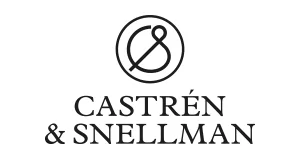The European regulatory framework of corporate sustainability is taking shape at a rapid pace. Sustainability regulation changes both corporate sustainability reporting and corporate sustainability due diligence. The scope of corporate sustainability is expanding, forcing companies to take responsibility for and report on their whole value chain, not just their own operations.
The Finnish legislation on sustainability reporting will enter into force at the turn of the year, affecting the operations of large listed companies and other large public-interest entities. Companies must publish their first sustainability report under the new standards in the spring of 2025 as part of their annual report, and it is the board's duty to ensure that the report is properly drafted and its correctness appropriately verified.
Transparent sustainability reporting will pave the way towards the upcoming Corporate Sustainability Due Diligence Directive. The CSDDD would hold large companies liable for the negative impacts of their operations and value chains. Companies would have to identify, prevent, mitigate and correct the negative impacts of their operations on a practical level, and the board would, for its part, be responsible for the execution of due diligence measures.
The EU's regulatory projects raise the question whether the Union is being too ambitious. The governing idea seems to be that others will follow in Europe's footsteps. It remains to be seen whether this will actually happen or whether Europe will end up going its separate way.
Nevertheless, with the inevitable arrival of corporate sustainability reporting and due diligence, company boards have an excellent opportunity to put the report data into use and assess how the business operations could promote sustainability targets while also accounting for growth and profitability. Sustainability reports can be expected to become a key criterion in assessing a company's attractiveness for investors. In the capital markets, the possibilities brought on by sustainable practices are as essential to a company's equity story as the practices themselves.
Right now, the key thing is to ensure that the channels for gathering data for the reports are in place, allowing the company to draft a report by the deadline. Even if a company is not yet subject to the new obligations, it is a good idea to prepare for transparent reporting – and perhaps draft a standardised sustainability report as a test run.
The content of this article is intended to provide a general guide to the subject matter. Specialist advice should be sought about your specific circumstances.



